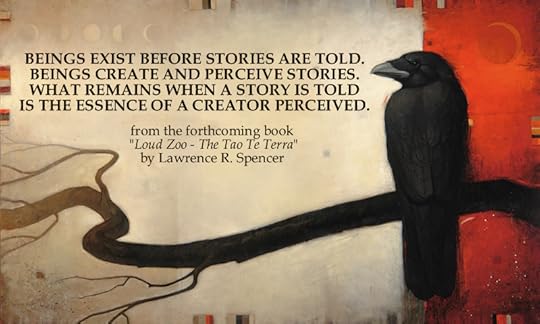Lawrence R. Spencer's Blog, page 370
January 1, 2018
FREEDOM
TESLA: SMARTEST MAN ON EARTH
 Nikola Tesla, the greatest inventor who ever lived, commented on Albert Einstein’s Theory of Relativity in a 1934 article published in the :
Nikola Tesla, the greatest inventor who ever lived, commented on Albert Einstein’s Theory of Relativity in a 1934 article published in the :
“I hold that space cannot be curved, for the simple reason that it can have no properties. It might as well be said that God has properties. He has not, but only attributes and these are of our own making. Of properties we can only speak when dealing with matter filling the space. To say that in the presence of large bodies space becomes curved is equivalent to stating that something can act upon nothing. I, for one, refuse to subscribe to such a view.”
(New York Hearald Tribune, 11 September 1932)
Tesla was critical of Einstein stating that his theory of relativity was:
“a beggar wrapped in purple whom ignorant people take for a king” and “a mass of error and deceptive ideas violently opposed to the teachings of great men of science of the past and even to common sense… the theory wraps all these errors and fallacies and clothes them in magnificent mathematical garb which fascinates, dazzles and makes people blind to the underlying errors…. its exponents are very brilliant men, but they are metaphysicists rather than scientists. Not a single one of the relativity propositions has been proved.”
He also commented:
” Supposing that the bodies act upon the surrounding space causing curving of the same, it appears to my simple mind that the curved spaces must react on the bodies, and producing the opposite effects, straightening out the curves. Since action and reaction are coexistent, it follows that the supposed curvature of space is entirely impossible – But even if it existed it would not explain the motions of the bodies as observed. Only the existence of a field of force can account for the motions of the bodies as observed, and its assumption dispenses with space curvature. All literature on this subject is futile and destined to oblivion. So are all attempts to explain the workings of the universe without recognizing the existence of the ether and the indispensable function it plays in the phenomena.”
Einstein’s Reply on this :
“No amount of experimentation can ever prove me right. A single experiment can prove me wrong.”
(New York Times, 11 July 1935, p23, c.8)
It is also rumored that when Einstein was asked how it felt to be the smartest man on Earth, he replied, “I wouldn’t know. Ask Nikola Tesla”.
THE AQUARIUM CLUB
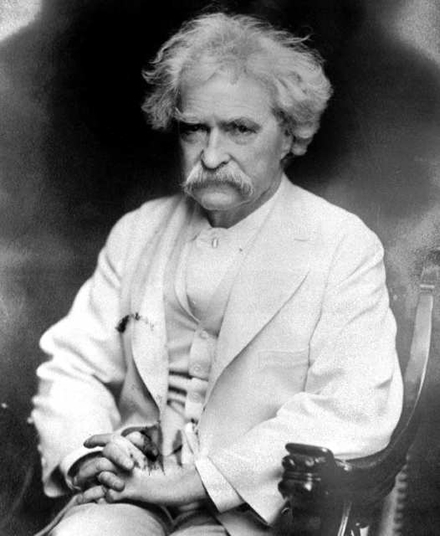 I am a great admirer of Mark Twain (Samuel Clemens). After reading his Autobiography I discovered that Mark Twain became increasingly cynical, depressed and disillusioned by the behavior of the human race. His revolutionary books, Huckleberry Finn and Tom Sawyer were protests against the institution of human slavery in a time when “owning people” for commonplace. Toward the end of his life, in his 70s, Mark Twain became reclusive and bitter about the pain and suffering he witnessed on his extensive travels around the world during lecture tours. This was compounded by the agony and personal responsibility he felt for the death of his infant son, the death of his daughters and his beloved wife. The accumulated tragedy of his his observations and experience as a human being overwhelmed him in the end. He died defeated by the pain of his own compassion for humanity and from the loss of the people he loved the most– his family.
I am a great admirer of Mark Twain (Samuel Clemens). After reading his Autobiography I discovered that Mark Twain became increasingly cynical, depressed and disillusioned by the behavior of the human race. His revolutionary books, Huckleberry Finn and Tom Sawyer were protests against the institution of human slavery in a time when “owning people” for commonplace. Toward the end of his life, in his 70s, Mark Twain became reclusive and bitter about the pain and suffering he witnessed on his extensive travels around the world during lecture tours. This was compounded by the agony and personal responsibility he felt for the death of his infant son, the death of his daughters and his beloved wife. The accumulated tragedy of his his observations and experience as a human being overwhelmed him in the end. He died defeated by the pain of his own compassion for humanity and from the loss of the people he loved the most– his family.
Many men who are “dreamers” and “visionaries”, like Twain, are highly empathetic. They FEEL the pain of other beings as a personal, subjective pain. Some beings find relief from this chronic agony in drugs or alcohol. Or, they just stop looking and caring. Mark Twain found a temporary relief from his own pain in tobacco, humor, and a “collection” of young girls….
This article is re-posted from the Blog “Today I Found Out”:
Samuel Clemens (aka, Mark Twain) used to “collect” girls between the ages of 10-16 years old.
On February 12, 1908, Clemens said, “I suppose we are all collectors… As for me, I collect pets: young girls — girls from ten to sixteen years old; girls who are pretty and sweet and naive and innocent — dear young creatures to whom life is a perfect joy and to whom it has brought no wounds, no bitterness, and few tears.”
Okay, so it isn’t actually as creepy as it initially sounds and in some ways is kind of sweet, but Samuel Clemens did love to entertain young girls. Towards the end of Clemens life, he suffered quite a lot of hardship. His daughter Susy died in 1896 and his wife Olivia passed away in 1904, followed by a second daughter, Jean, in 1909. Clemens fell into a depression in the early 1900s and noted that while he had reached the grandfather stage of life, he had no grandchildren to keep him company. He therefore went about befriending young girls who he treated as surrogate granddaughters.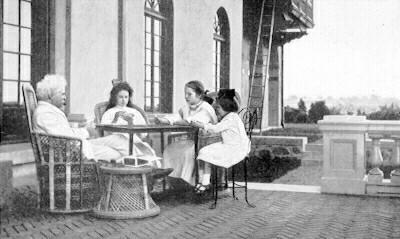
The girls in question were the daughters of couples who ran in his same social circle. He often met them on boats carting him back and forth to England or Bermuda, as was the case with Helen Allen. Allen was just twelve years old when Clemens stayed with her family in Bermuda. Her father was the American Vice-Council in Bermuda; her grandmother had known Clemens’ wife as a child. Clemens said Allen was “perfect in character, lovely in disposition, and a captivator at sight,” everything that Clemens wanted in his collection of young girls.
The group of girls were called “Angel Fish” or “the Aquarium Club.” The name is derived from the fish that Clemens first saw in Bermuda. He decided on that name because the angelfish “is the most beautiful fish that swims.” Clemens would buy angelfish pins in Bermuda and present them to each of his girls. Out of a dozen or so original pins, at least one is still in existence. It currently resides in the Mark Twain Library in Redding, Connecticut.
So what exactly did a man in his late seventies do with a bunch of teenaged girls? All manner of innocent, grandfatherly things. Clemens invited the girls to concerts, the theatre, and to his own house for card games, billiards, and reading. While in Bermuda, several of his Angel Fish had fun riding in a donkey-pulled cart with him. Clemens initially called his estate “Innocence at Home” in honour of “his girls.” He kept in touch with them by exchanging letters when they couldn’t visit, but always kept a room available and hoped to have an Angel Fish “in it as often as Providence will permit.” Before you get too much of a “Michael Jackson” vibe, it should be noted that the girls were always accompanied by a chaperone; the room for the Angel Fish even had two beds to accommodate a mother or guardian along with a girl.
Besides the room, Clemens’ house also had a billiard room which was refashioned into a sort of shrine to the Angel Fish. Above the door was a sign that said “the Aquarium” and inside the walls were lined with framed photos of each of the Aquarium Club’s members.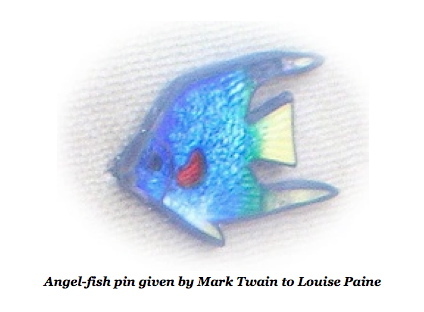
As innocent as it all was, if some celebrity tried to do that today, the press would have a field day with it, insinuating all manner of disgusting things, whether there was any evidence of such acts or not. In his day, it wasn’t really much of a scandal, though Clemens’ remaining daughter, Clara, didn’t appreciate the behavior, perhaps being a tad jealous. When she returned to her father’s home from a stint in Europe to find that her father had collected a group of young girls to entertain, she made her father change the name of his house to “Stormfield” and stopped the household staff from saving letters from the Angel Fish. (Today the full collection of every surviving letter can be read in Mark Twain’s Aquarium: The Samuel Clemens-Angelfish Correspondence.)
The presence of chaperones probably should have put Clara’s mind at ease, but the letters Clemens wrote to his girls would definitely raise some eyebrows today. Shortly after Dorothy Harvey’s fourteenth birthday, he wrote to tell her “I wish I could have those free-gratis-for-nothing-voyages-&-nothing-to-do-but-look-at-you every day.” To Dorothy Quick, just eleven years old, he wrote after one of her visits, “I went to bed as soon as you departed, there being nothing left to live for after that, & all the sunshine gone. How do you suppose I am going to get along without you?” The letters showed his love and devotion to his girls and the enjoyment he experienced in spending time with them, but today parents would likely have used these letters as evidence in civil lawsuits.
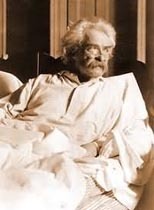 Despite this, only one relationship ever looked to be somewhat improper, and that wasn’t with one of his Angel Fish; further, the inappropriate overtures didn’t come from Clemens. The girl was Gertrude Natkin. He met her when she was fifteen and he was 70 in 1905. The two exchanged letters and Natkin developed a “school girl crush” on Clemens and went somewhat overboard in expressing her affection for him through her letters. Clemens became concerned about this and distanced himself from her- his letters growing more and more infrequent, because he didn’t want to gain a reputation for impropriety nor encourage her affections, perhaps proving that he saw his Angel Fish as nothing more than granddaughters. Certainly, at the time, an adult male courting a 15 year old girl wouldn’t have raised eyebrows, particularly if the suitor was well-to-do and not too old. But at 70, it would have been a scandal even in that time period.
Despite this, only one relationship ever looked to be somewhat improper, and that wasn’t with one of his Angel Fish; further, the inappropriate overtures didn’t come from Clemens. The girl was Gertrude Natkin. He met her when she was fifteen and he was 70 in 1905. The two exchanged letters and Natkin developed a “school girl crush” on Clemens and went somewhat overboard in expressing her affection for him through her letters. Clemens became concerned about this and distanced himself from her- his letters growing more and more infrequent, because he didn’t want to gain a reputation for impropriety nor encourage her affections, perhaps proving that he saw his Angel Fish as nothing more than granddaughters. Certainly, at the time, an adult male courting a 15 year old girl wouldn’t have raised eyebrows, particularly if the suitor was well-to-do and not too old. But at 70, it would have been a scandal even in that time period.
Clemens died on April 21, 1910 of a heart attack, just a few years after establishing the Aquarium Club for his Angel Fish. All in all, there were around a dozen members of the club who visited Clemens regularly until his death, but his enthusiasm for the club waned in the last year of his life; he complained that his girls were growing up too fast, complained about their boyfriends, and cut off one girl when she turned sixteen. In the end, his fondness for them primarily lying in their innocence, as something of a breath of fresh air in a cynical world, waned as they gradually lost that defining feature of children.”
Originally posted 2013-07-29 13:54:13. Republished by Blog Post Promoter
December 31, 2017
COMPUTER GODDESS
As “science” has become the unofficial “religion” of Western “civilization” in the 21st Century it is only right and fitting that we should create aesthetic images and mythology about the “divinities” of science. And, as our civilization, and perhaps our entire universe, is manipulated by computer programming it is only fitting that we worship the “Goddess of Computers”.
 Augusta Ada King-Noel, Countess of Lovelace (née Byron; 10 December 1815 – 27 November 1852) was an English mathematician and writer, chiefly known for her work on Charles Babbage’s early mechanical general-purpose computer, the Analytical Engine. Her notes on the engine include what is recognised as the first algorithm intended to be carried out by a machine. As a result, she is often regarded as the first computer programmer. Ada Lovelace was the only legitimate child of the poet George Lord Byron and his wife Anne Isabella Milbanke (“Annabella”), Lady Wentworth.
Augusta Ada King-Noel, Countess of Lovelace (née Byron; 10 December 1815 – 27 November 1852) was an English mathematician and writer, chiefly known for her work on Charles Babbage’s early mechanical general-purpose computer, the Analytical Engine. Her notes on the engine include what is recognised as the first algorithm intended to be carried out by a machine. As a result, she is often regarded as the first computer programmer. Ada Lovelace was the only legitimate child of the poet George Lord Byron and his wife Anne Isabella Milbanke (“Annabella”), Lady Wentworth.
As a teenager, her mathematical talents led her to an ongoing working relationship and friendship with fellow British mathematician Charles Babbage, also known as ‘the father of computers’, and in particular, Babbage’s work on the Analytical Engine. Lovelace first met him in June 1833, through their mutual friend, and her private tutor, Mary Somerville. Between 1842 and 1843, Ada translated an article by Italian military engineer Luigi Menabrea on the engine, which she supplemented with an elaborate set of notes, simply called Notes. These notes contain what many consider to be the first computer program—that is, an algorithm designed to be carried out by a machine.
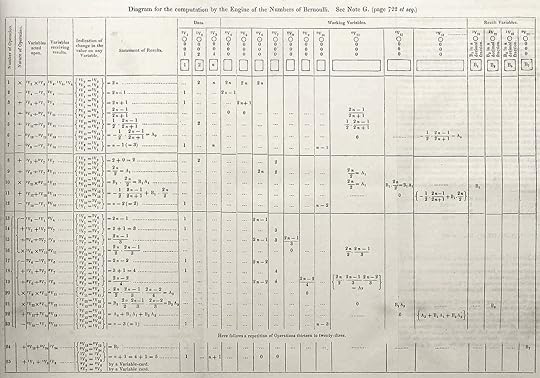 By Ada Lovelace – http://www.sophiararebooks.com/pictures/3544a.jpg, Public Domain, https://commons.wikimedia.org/w/index.php?curid=37285970
By Ada Lovelace – http://www.sophiararebooks.com/pictures/3544a.jpg, Public Domain, https://commons.wikimedia.org/w/index.php?curid=37285970
Originally posted 2016-06-01 20:05:29. Republished by Blog Post Promoter
CRIME & JUSTICE
 George Bernard Shaw (26 July 1856 – 2 November 1950) was an Irish playwright, critic and polemicist whose influence on Western theater, culture and politics extended from the 1880s to his death and beyond. He wrote more than sixty plays, including major works such as Man and Superman (1902), Pygmalion (1912) and Saint Joan (1923). Shaw became the leading dramatist of his generation, and in 1925 was awarded the Nobel Prize in Literature.
George Bernard Shaw (26 July 1856 – 2 November 1950) was an Irish playwright, critic and polemicist whose influence on Western theater, culture and politics extended from the 1880s to his death and beyond. He wrote more than sixty plays, including major works such as Man and Superman (1902), Pygmalion (1912) and Saint Joan (1923). Shaw became the leading dramatist of his generation, and in 1925 was awarded the Nobel Prize in Literature.
Originally posted 2016-04-14 02:12:54. Republished by Blog Post Promoter
December 29, 2017
THE TAO
GODS CREATING GODS
“We Create gods as someone to blame for our own mistakes.
A Creator Knows That They Are The Source of Creation”
— Lawrence R. Spencer. Copyright © 2011. All Rights UnReserved.
Originally posted 2011-05-05 11:41:59. Republished by Blog Post Promoter
December 28, 2017
CREATOR PERCEIVED
December 27, 2017
SOURCE AND CONTENT OF CHEMTRAIL SPRAY MIX REVEALED
This video solves the 20 year old mysteries:
WHO IS MAKING THE CHEMTRAIL SPRAY MIX?
WHERE DOES THE CHEMTRAIL SPRAY MIX COME FROM?




